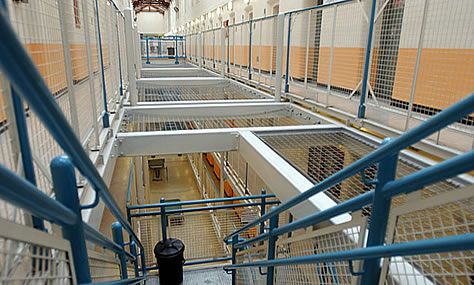Revealed – the most popular BusinessDesk stories of 2023

The past year has seen TheBusinessDesk.com increase engagement with the region’s business community through its events, and daily coverage of the most relevant and important news stories.
But there was one story, in particular, which shot to the forefront of our most-read items throughout the year.
In a round-up of our most popular reads, attracting many thousands of hits, was the news, last month, that multimillionaire, Lawrence Jones, had been convicted of two counts of rape and sexual harassment.
We were among the first to break the news from Manchester Crown Court, and follow up with an in-depth examination of the case, and the toxic conditions at the former UKFast cloud business.
BusinessDesk.com North West editor, Michael Taylor, provided the most comprehensive examination of Jones’s denouement in his piece on November 23, ‘The Downfall of Lawrence Jones – Manchester’s MeToo Moment’.
Setting the tone in his introduction – “There was always something odd about Lawrence Jones. But the true depths of his depravity were probably only known by the women he drugged and raped”, he explained Jones’s spectacular fall from grace, illustrated by first hand accounts and observations from the main players.
Jones is now serving a 15 year jail sentence.
::

Type 26 Frigate
Our second-most popular story of the year was a heartening contract win for Birkenhead shipyard, Cammell Laird, which has had to contend with a volatile and shifting market in the industry.
In September, the yard announced it had been appointed by defence giant BAE Systems to build units for its Royal Navy Type 26 Frigates.
The advanced anti-submarine warfare vessels are being constructed at BAE Systems’ site in Govan, Scotland, but will incorporate units built by both Cammell Laird and its partner, A&P.
Cammell Laird – which operates one of the largest construction halls in Europe on the banks of the Mersey – will build units for Ship No4, HMS Birmingham. It will also be joining all of these units together.
The contract marked the latest milestone in a productive history of collaboration with BAE Systems, having previously supported the build of the Astute and Dreadnought Class Submarines, manufactured substantial parts of Her Majesty’s QEC Class Aircraft Carriers and delivered the Type 45 Power Improvement Project (PIP).
::

Anfield Road extension
The same month, just over the river, news emerged of a serious delay to Liverpool FC’s new Anfield Road stand extension, after the lead construction firm crashed into administration.
Buckingham Group Contracting failed to clinch a rescue deal, having earlier announced a Notice of Intention to Appoint Administrators. The subsequent failure of the £700m turnover business led to the loss of almost 500 Buckingham Group jobs.
The news was a huge blow to LFC, which had hoped to open the upper tier of the new stand, increasing the club’s capacity to 61,000.
Mike Kempley, chairman at Buckingham Group Contracting, said: “After 36 years of uninterrupted trading, this is an extremely sad day for all the exceptionally committed and talented people who have made Buckingham Group Contracting the business it is.”
LFC has since appointed new contractors and the extension is opening on a phased basis.
::

First Manchester was hit by a Unite the Union ballot that rejected its latest pay offer to its Oldham drivers and announced that industrial action would begin from July 3.
At the time inflation was raging and staff representatives across a broad range of industries were demanding double-digit wage increases to keep up with the rising cost of living.
Unite instituted a raft of strike days throughout July, bringing the bus service to a halt, and threatened further action if the dispute dragged on.
Ian Humphreys, managing director of First Manchester, said: “Industrial action will be damaging to everyone and cause severe disruption to the daily lives of our customers who rely on the bus to get to work, education and for appointments.”
The dispute was eventually settled in September, with Unite accepting management’s offer of an overall increase in pay of 18.5%, with no strings attached.
::

Moda Furnishings’ Trafford store
Earlier in the year, in July, we carried news of a rescue deal for home furnishings group, Moda Furnishings.
Manchester-based Moda had filed a notice of intention to appoint administrators, to give it protection from creditors while a sale was completed.
The following day, an acquisition deal was revealed by West Midlands-based Giomani Designs which included Moda’s head office and six showrooms, in Manchester, Caterham, Chelmsford, Cheltenham, Milton Keynes and a pop-up in Leeds. All 75 Moda employees transferred to Giomani Designs.
Moda Furnishings was established in 2014 and acquired by private equity firm Endless in 2019, when it backed a management buyout led by chief executive Jonny Brierley and chief operating officer Vallan McCarthy.
Moda was a beneficiary of the lockdowns and annual sales more than doubled in two years, reaching £34m in the year to October 2021.
Although it had not filed its 2022 accounts, Moda had acknowledged “a material softening in demand” which it blamed on the cost-of-living crisis, high levels of competition and significant cost inflation in global freight costs.
The business said it “could not remain viable on a standalone basis against a backdrop of exceptional levels of discounting” as competitors seek to clear excess inventories.
::

Sarah Rajani
Several stories over the course of the year centred on the wild rollercoaster ride of ecommerce retailer THG and the often eccentric outbursts of the founder Matthew Moulding. One of the sideshows of THG’s strategy was the running commentary provided by activist shareholder Kelso, run by former Zeus Capital chief executive John Goold, and boasting a star roster of investors.
They believe THG is significantly undervalued, particularly its Nutrition division’s main brand, MyProtein, and has urged the board to up its corporate game, particularly its PR efforts and its relationship with the investment community.
Kelso appointed Sarah Rajani, an experienced corporate raider, to its board, before also making a move on Manchester-headquartered cyber security specialist NCC Group.
Elsewhere Moulding, who can count his chairman Lord Charles Allen and former BBC marketing chief Sue Farr as his trusted board advisers, has been at loggerheads with large sections of the media since his disastrous float of THG in 2020, bought City AM out of an administration process.
Earlier this year he got into an unseemly online row, reported by TheBusinessDesk.com here with investigative reporter Dan McCrum from the Financial Times who he implied was colluding with hostile forces in the City.
::

Stockport County celebrate reaching play off final (EFL)
Football finance stories proved popular over the course of the year with Everton, Manchester United, Carlisle United, and little old Morecambe all going through elongated takeover speculation.
Everton FC owner, Farhad Moshiri, announced a deal to sell the club to Miami investment outfit 777 Partners in September, but we were always sceptical.
Doubts have already been raised over 777’s ability to afford a full takeover – Moshiri is understood to be seeking £500m for his shareholding, while the club has debts of around £225m, and millions more pounds will be needed to complete the new stadium – but there are also regulatory hurdles to clear.
Even less edifying was the jailing of Fleetwood Town owner Andy Pilley on fraud charges.
We also reported that Venky’s, the owners of Championship football club Blackburn Rovers, have had nine properties worth £7m, across two different Indian states, seized by the Directorate of Enforcement (ED), an arm of the Indian government set up to target money laundering, foreign exchange management and seizing the assets of fugitives, assets worth more than £7m were seized by the state.
However, the deal in question does not relate to their ownership of Blackburn Rovers, but the purchase of a converted farmhouse near Bolton in 2011 which they bought from footballer turned businessman Gary Neville.
Far away from the £5billion takeover of Manchester United and the riches of Manchester City, the two clubs from opposite ends of the North West contested the League Two final at Wembley, Stockport County and Carlisle United, both clubs having experienced their fair share of financial and footballing trauma over recent seasons.
County, now owned and backed by Select Property and Vita chairman Mark Stott, plunged to National League North in 2013 where they spent six seasons.
::

Simon Orange
If business was turning off the stock market, another type of corporate structure entered the business lexicon this year with the rise of the corporate compactor – PHD Holdings is one, but there was great interest in CorpAcq and the deal for an American investment vehicle is to acquire the investment business and list it on the New York Stock Exchange.
The deal raised additional funds for Altrincham headquartered CorpAcq, founded by Sale Sharks Rugby Club owner Simon Orange, the brother of Take That singer Jason Orange.
A new influx of capital will “optimise” CorpAcq’s balance sheet and fund more acquisitions with a $592m war chest from the fundraising of Churchill VII’s, a special purpose investment vehicle set up as a trust account by New York corporate financier Michael Klein.
Could we see more of this alternative to traditional private equity? According to Andy Dodd of PHD Industrial Holdings, it’s not only a far more founder friendly model, but it also operates as an active investor with a portfolio of investments into a diverse and disparate cluster of businesses.
“Our model enables us to hold businesses, reinvest cashflows and benefit from compound growth. Because we avoid the constant cycle of fundraising, investing and exiting, it reduces the proportion of time where the funds are not invested.”
::

Zuber and Mohsin Issa
Another huge story that attracted attention was the highly leveraged financial engineering that has fuelled (excuse the pun) the expansion of Euro Garages and the reach of the Issa Brothers.
But it wasn’t their dense results, or the tortuous appearance of Mohsin Issa at a parliamentary hearing, but the investment in Tesla’s ultra-fast chargers to accelerate the roll-out of its evpoint charging network across the UK and Europe that was one of the best read stories of the year.
Asda Group, which they control, has formally completed the acquisition of the Blackburn-based EG Group’s UK business for £2.07bn, which they also control.
Are they in too deep? A letter from the Issa Brothers to MPs on the Business and Trade Committee admitted errors in their evidence, but appear to have made even more mistakes in attempting to clarify the complex ownership of their businesses.
A 13-page letter signed by Moshin Issa, co-CEO, goes into detail on pricing policies, wages at Asda, and includes complex diagrams of the labyrinth offshore structures which own both EG and Asda.
::
Finally, an enormously popular story came at the start of the year when we reported in January on an abandoned van on a back street in Salford and a damning judge’s report into the goings on at furniture retailer Maker and Son, which stood in stark contrast to optimistic, upbeat LinkedIn posts promising to “smash it in 2023” by Jack Mason the chief executive of Inc & Co, which had acquired Maker and Son.
It turned out to be the tip of a very large iceberg and is the subject of several further investigations, court cases and disputes that we are continuing to monitor.




